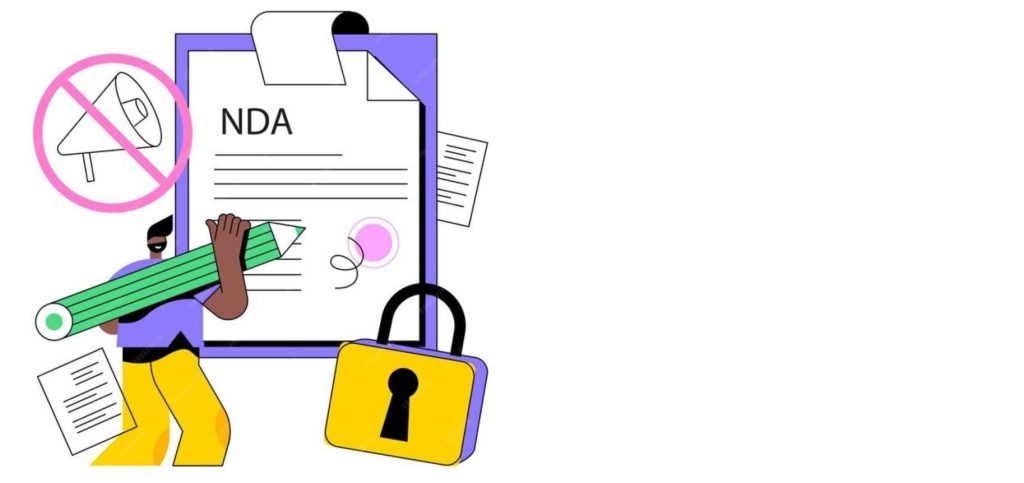Introduction
When going into a business relationship either as a virtual assistant or as the client, having a virtual assistant contract is not just a formality but is highly important. A well-drafted contract can protect both parties, establish expectations clearly, and eventually build the bedrock for a good working relationship. Without one, you may be wading through miscommunication, payment disputes, or even legal headaches for the worst.
In this blog, I’ll explain the key elements a virtual assistant contract should contain. Whether you are a business owner, entrepreneur, or virtual assistant, these insights shall help make your contracts comprehensive, professional, and legally valid.
Why You Need a Virtual Assistant Contract?
First, let’s talk about why one should have a VA contract. Simply, a contract formalizes the relationship and sets the ground rules. You are making space for confusion about responsibilities, deadlines, and payments. A good contract ensures that both parties agree on each clause.

Here are the reasons why one should opt for a virtual assistant contract:
- It dictates the scope of work.
- It protects both parties legally.
- It states the terms of payment and schedules.
- It reduces misunderstandings of the roles and expectations.
Now, let’s dive into the must-have elements you should put into writing.
Scope of Work
This is the most important ingredient of a virtual assistant contract. Clearly define, what services or work will be provided by the virtual assistant. Be it email management, booking appointments, or even social media handling-everything in detail.

What to include:
- The detailed list of tasks.
- The tools or software that the VA will use.
- Expected Turnaround Time for Recurring Tasks.
- What is outside the scope and what the VA won’t be responsible for?
By putting the scope of work, both parties will have an idea of what is expected. It will also save the virtual assistant from being asked to perform tasks outside the agreed-upon responsibilities.
Payment Terms In Virtual Assistant Contract
Let’s be real: nobody wants confusion regarding money. A well-structured virtual assistant contract should outline the payment terms in clear, unmistakable language. This would ensure there is no confusion over how and when the virtual assistant is to be compensated.

What to Include:
- Hourly or project-based rates.
- When the payments are supposed to be affected: weekly, bi-weekly, or monthly.
- Mode of payment: PayPal, direct deposit, bank transfer, etc.
- Late payment penalties or fees.
Also, it could be a good idea to add a deposit clause, especially for long-term or big projects. This will protect the VA, if the client fails to pay on time or backs out mid-project.
Contract Duration and Termination Of Virtual Assistant Contract
This is the period your virtual assistant contract will cover. Is it an ongoing contract or merely a one-time affair? The duration clause is important in that it shall provide both parties with the dates when it starts, when it ends, and what transpires if one of the parties wants to terminate the agreement prematurely.

What to Include:
- Duration/length of time for the contract and start and end dates.
- Conditions for termination, including notice by either party to terminate within a specified time, usually 30 days.
- Bases for immediate termination, such as breach of contract and non-payment.
- Manner in case of early termination on how to wind up the work.
Termination clauses are excellent ways to protect both the client and the virtual assistant in case there is a need to end the relationship. Furthermore, it helps one sleep better knowing that things will not fall apart overnight without any warning signal.
Confidentiality and (NDA)
Data privacy is of prime value in the present business environment. Whether you are a virtual assistant dealing with the private information of your clients or a business owner sharing proprietary information, you should include a confidentiality clause in any virtual assistant contract you write.

What’s included:
- A clear statement that the VA will keep all client information confidential.
- The duration of the non-disclosure agreement usually continues well after the contract has expired.
- Specific information regarding what is and is not allowed to be disclosed.
Including a Non-Disclosure Agreement in your virtual assistant contract is another protection. It assures that business information, trade secrets, or client data will be kept safe.
Intellectual Property
If the virtual assistant is creating content of any intellectual property as part of the work, then the virtual assistant contract needs to identify who will own the rights to that work. In most cases, this would mean the client should own the IP, but an agreement should be made before starting to work.

What to Include:
- The clause states that all content created while working with you under contract shall belong to your client.
- The rights of the client in using, editing, or selling the IP.
- Any limitations the VA may have concerning the use of the work after the end of the contract.
This aspect is crucial in creative ventures, such as marketing, designing, and content creation. Well-defined ownership protects the assets of the clients, while the VA would be secured in knowing exactly what rights they are giving away.
Revisions and Feedback Of Virtual Assistant Contract
How many times have you had to make endless revisions, only to find out you and your client were never on the same page? So as not to be in such a situation, your virtual assistant contract should have a revisions and feedback section. This manages the expectations for both you and their ideas and prevents “scope creep”-that is when the requirements of the project balloon beyond the original agreement.

What to Include:
- Number of revisions per task included.
- Additional fees if the revisions are more than what was agreed upon.
- The timeframe when feedback is needed, such as within 48 hours.
This clause is a no-brainer for virtual assistants whose tasks and projects are creative or project-based. By giving a clear boundary for revisions, both parties will not get into unnecessary frustration and delays in the project.
Indemnification and Liability in Virtual Assistant Contract
Accidents can happen, and misunderstandings can take place. This is where an indemnification and liability clause in your virtual assistant contract would be useful. Such a clause would protect the client and virtual assistant from any resultant legal claims due to the relationship between them in the course of work.

What to Include:
- A statement that the VA, will not be responsible for any loss caused during their services.
- Indemnification Clause: It provides that the customer agrees to compensate the VA against legal claims caused by the client’s use of the VA’s work.
- This will ensure that in case something goes wrong, both parties are safe; disputes won’t result in expensive legal challenges against either party.
Communication Expectations
Poor communication can ruin even the best working relationships. A virtual assistant contract should outline expectations on how and when communication will take place.

What to Include:
- Preferred methods of communication, i.e., email, Slack, or phone.
- Response times, i.e., the VA shall respond within 24 hours.
- Availability, i.e., the VA shall be available Monday through Friday from 9 AM to 5 PM.
- Expectations around check-ins or progress reports.
This will ensure that both parties are always on the same page and that neither the client nor the VA is ever left in the dark regarding anything important that might come up or change.
Conclusion
A virtual assistant contract will save both the client’s and professional backs and lay the groundwork for success and a seamless working relationship. Key elements within the contract will set you up for productivity and a hassle-free partnership in working with your client. Some of these basic components of a VA contract are, but are not limited to: scope of work, payment terms, confidentiality, and communication expectations.
About Us
Tasks Expert offers top-tier virtual assistant services from highly skilled professionals based in India. Our VAs handle a wide range of tasks, from part time personal assistant to specialized services like remote it support services, professional bookkeeping service etc. Furthermore, it helps businesses worldwide streamline operations and boost productivity.
Ready to elevate your business? Book a Call and let Tasks Expert take care of the rest.









